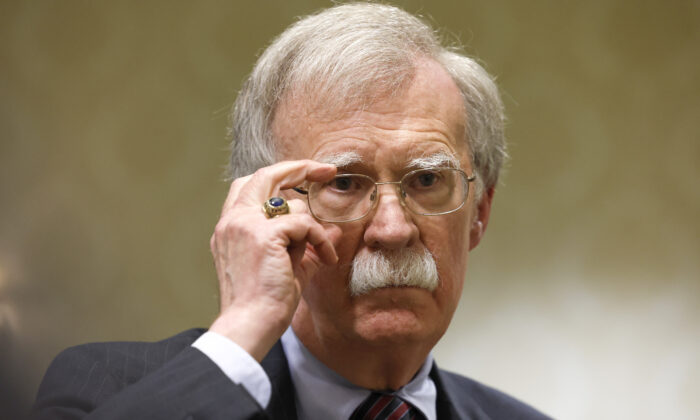The former US National Security Advisor said New Zealand ’should recognise there’s a difference between nuclear weapons and nuclear power.’
Former U.S. National Security Advisor and Ambassador to the United Nations, John Bolton, says New Zealand risks being “spun off on its own” if it continues to insist that no nuclear-powered vessels enter its waters. He added it needs to “recognise there’s a difference between nuclear weapons and nuclear power—even on naval warships.”
Speaking to Radio NZ, Bolton—U.S. Assistant Attorney General under U.S. President Ronald Reagan when the ban was introduced in 1984— said that while he disagrees with the policy, the United States has “learned to deal with it.”
“But going forward in what I think is an increasingly dangerous world, I don’t want to see New Zealand—however far away it is from other large bodies of land—spun off on its own. Because you’ll simply be at greater risk.”
New Zealand gained international attention when it introduced the ban at a time when France was still actively testing nuclear weapons in the Pacific (it stopped in 1996).
New Zealand had long opposed the testing—even, in 1973, sending a Cabinet Minister aboard a frigate to join a flotilla of protest ships at Mururoa Atoll.
In 1985, when called on to defend the government’s position of effectively banning U.S. warships (the United States would neither confirm nor deny which of its ships were nuclear powered), then Prime Minister David Lange made his famous “uranium on your breath“ speech at the Oxford Union.Incidents like the meltdowns at Five Mile Island and Chornobyl subsequently reinforced New Zealand’s anti-nuclear stance.
The ban strained diplomatic relations with the United States, effectively suspending New Zealand’s membership in the Australia, New Zealand, and United States Security Treaty (ANZUS).
Full defence cooperation was reestablished in 2012, but New Zealand’s nuclear-free policy remained.
So, in pushing for a reversal, Bolton hopes New Zealanders will forget that history and embrace the US agenda in the Pacific—something recent research suggests is unlikely.
He argued that technology had advanced since the time of the meltdowns.
“If you want to establish the taboo for nuclear weapons, okay, I get that. But for nuclear power itself, I just think it is a mistake,” he said.
But he admitted that the United States was more relaxed about New Zealand’s stance than in the 80s, saying. “If it didn’t change, we’d still deal with it. It’s not disqualifying as the potential interest in AUKUS. It hasn’t affected our close relations.”
New Zealand’s stance on nuclear propulsion disqualifies it from participating in AUKUS Pillar One—the development of nuclear-powered submarines by Australia, the United States, and the UK. But there has been talk of it becoming a partner under Pillar Two, which involves the exchange of technology and intelligence.
“Personally, I wish you would join Pillar One too,” Bolton said.

